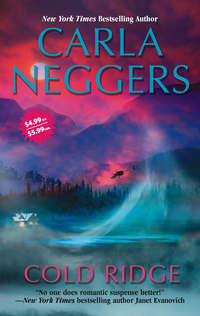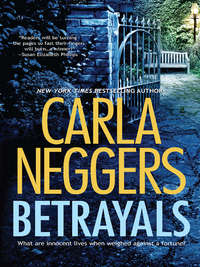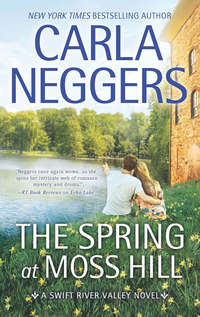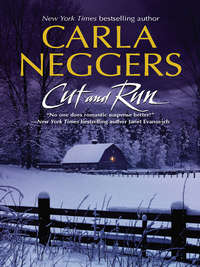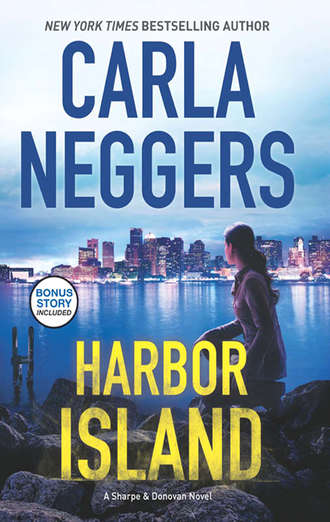
Полная версия
Harbor Island
She disconnected and called Colin. “The woman who wanted to meet me. She’s dead, Colin.”
“Where are you?”
“I told you. Bristol Island.” But she realized what he meant. “I took cover. I’m safe. I’ve never seen this woman before. I’m sure I’d remember. If it’s the same woman who called me, her name is Rachel Bristol. At least that’s what she said her name was.”
“We’ll figure that out later. You’re alone out there. No one else is in danger. Right now, your only job is to stay safe. That’s it, Emma. Nothing else.”
That would be the case for anyone in her situation. She knew that. “I’m in a good spot.”
“I’m on my way,” Colin said. “I’ll stay on the phone with you until the police get there.”
She heard the gulls, their cries sharper, louder, as if they sensed the tragedy that had unfolded up by the white cottage. She leaned forward, without exposing herself as a target, and peered down at the dead woman, seeing now that her right arm was flopped at her side with the palm up.
Emma edged a bit closer, noticing something in the woman’s palm.
A small, black stone, polished smooth.
There was some kind of etching that she couldn’t make out—but she didn’t need to. The stone would be inscribed with a simple Celtic cross and a sketch of Saint Declan, an early medieval Irish saint.
The cross was the signature of an international art thief who had first surfaced ten years ago in the tiny village of Declan’s Cross on the south Irish coast.
Her thief, as Yank had put it.
Eight times over the past decade, the thief had laid claim to a recent art heist by sending a small cross-inscribed stone to Wendell Sharpe, Emma’s grandfather. Then last week, that pattern changed. Out of the blue—unrelated to any recent art theft—she and her grandfather had both received cross-inscribed stones in Ireland. So had her brother in Maine, and Matt Yankowski, her boss, in Boston.
“Emma?”
The sound of Colin’s deep, intense voice brought her out of her thoughts. “I’m here.”
“You’re sitting tight, right?”
She heard the urgency in his voice—the fear for her safety—and tried to reassure him. “I am.” She ducked back within the branches of the birches. “I’m the patient one, remember?”
* * *
By the time the Boston homicide detectives finished up with Emma, the rest of the HIT team had gathered at their waterfront offices. She and Colin were in her car, on their way. He’d taken a cab to Bristol Island and flashed his credentials at the police officers securing the scene, and that was that. No one had stopped him. When he and Emma walked back to the marina, he’d had her toss him her keys. She hadn’t argued. She ached from tension, jet lag, her run—from the searing reality that she had come upon a woman who had just been shot to death.
“You didn’t charm the detectives,” Colin said when they were almost to HIT’s building. “I thought you might.”
“I’m not in a charming mood.”
“As in a mood to charm or a mood that charms?”
“Both. Either.”
“I never charm anyone.”
He’d conducted more than a few death investigations during his three years with the Maine marine patrol. She didn’t have that experience. Didn’t want it. But she knew what to do in an active shooter situation, and she’d done it.
“You’re right, though,” she said. “The detectives aren’t happy with me.”
“Can’t blame them. A woman shot as she’s about to meet an FBI agent about an international art thief they didn’t know about. An FBI agent with a unit based in their city they didn’t know about.”
Emma sank into the passenger seat of her small car. “I told them HIT is discreet, not secret. I was being honest, but they took it wrong—said I was being cheeky.”
Colin glanced over at her. “Did they really say cheeky?”
“Maybe they just rolled their eyes.”
The police had cordoned off the small island while they searched for evidence, but there were no additional victims and no signs yet of the shooter, who could have exited the scene by boat, on foot or by car, truck, van or—as one of the detectives had put it—stork. Emma had nothing concrete to offer beyond a description of the call and her reasons for going to the island. She had stuck to the broad brushstrokes of her history with the thief. Details could wait for more information on the dead woman.
She glanced out the passenger window at the harbor, eerily still under the clear sky. “We don’t know if the dead woman is Rachel Bristol or if either one—the dead woman or Rachel Bristol—is the one who called me.”
“Odds are, Emma.”
She nodded, turning back to him. “Yes. Odds are.”
“She had a stone cross on her exactly like the crosses your thief has sent to your grandfather after every theft for the past ten years. Add in the crosses sent to you, Lucas and Yank last week, and I don’t blame the Boston homicide detectives for being pissed that we didn’t bring them up to speed on this thief. I told them to calm down but they have a point.”
“None of the thefts occurred in Boston,” Emma said. “We can’t get tunnel vision. That won’t help.”
“We also have to look at the evidence right in front of us.”
She took a quick breath as she pictured the woman’s face. Her dead eyes. The stone cross in her palm. “I’ve heard of suicidal people manipulating someone to find their body, but that’s not what happened here. This wasn’t a suicide. I didn’t see a weapon, and the police haven’t found one, at least not yet.”
“She wasn’t shot by aliens, either.”
Emma ignored his muttered comment. “The police said the area is sometimes used for illicit target practice. I suppose this could have been an accidental shooting. I didn’t hear gunfire. Planes were landing and taking off at Logan but I didn’t notice any close overhead. I was focused on the island and what I was doing, though, not on the sky.”
The police were in the process of interviewing everyone at the marina. People at a busy harbor marina presumably were accustomed to frequent comings and goings. Even at a quiet time of year, they wouldn’t necessarily pay attention to someone wandering off onto an island trail. As far as Emma knew, no one had paid attention to her when she’d arrived.
Colin slowed, downshifting as they came to their building. “Emma, did you tell the police everything?”
“What do you mean by everything?” His eyes held her for a fraction of a second, but it was enough. “Colin, are you mad at me?”
She saw him tighten his grip on the wheel. “We can talk later.”
She sat up straight. “You are mad.”
“It’s your nature to hold back, Emma. You don’t want to do that now, with this killer at large.”
“I’m not holding back. I’m doing my job.”
“If I’d been with you when this woman called, would you have told me?”
“I did tell you. I texted you.”
“That was one hell of a cryptic message you sent,” he said.
“You don’t think I should have gone out there alone.”
“To a deserted island to meet a stranger who called you about a thief who could be escalating to violence? Damn right I don’t think you should have gone out there alone.”
Emma didn’t answer immediately. She appreciated his intensity and his honesty, if not his conclusion. But he thought she kept secrets. He thought she had layers that he would never be able to peel back to her core. Love and sex were one thing. Knowing her was another. She got that and attributed it to their different natures—his hot to her cool—and not to anything fundamentally wrong with their relationship, or with her.
Finally, she said, “I made a judgment call.”
“So you did.”
“What about you? The note you left on the kitchen counter wasn’t exactly packed with details. You went off on your own.” She gave him a cool look. “You weren’t at Starbucks, were you?”
“I didn’t find a dead body.”
Not one to back down, her Colin. “I was careful. I was aware of my surroundings. If the shooter had wanted me dead—”
“Then you’d be dead right now, and I’d be explaining to the homicide detectives that I didn’t know what the hell you were up to out on that island.”
“I wouldn’t have thought twice if it’d been you going to meet a CI.”
“For good reason.”
“Because you have field experience that I don’t. Okay. Fair enough. That doesn’t mean I didn’t know what I was doing.”
Colin sighed through clenched teeth. “I’m not saying you didn’t know what you were doing. I’m saying you shouldn’t have gone alone.” He turned onto the gated entrance at their building. “And if you want to see mad, wait until you talk to Yank.”
“Does he know?”
“Not unless someone else told him.”
“I thought you might have called him while I was with the detectives,” Emma said with a grimace.
“Ha. Not a chance, sweetheart.” He glanced at her, his eyes that deep, sexy blue that made her spine tingle. They were uncompromising now, certain and if not annoyed, at least frustrated. Then, without warning, he reached across the small car and touched her cheek with one curved finger. “I’m glad you’re safe.”
“It was good to hear your voice when I was out there hiding behind a tree. Are you going to tell me where you took off to while I was on my run?”
“It involved cockroaches.”
“The six-legged kind or the two-legged kind?”
“Six.”
Emma shuddered. “Gross.”
Colin winked at her, any hint of irritation gone. “There’s something we have in common. We both hate cockroaches.”
4
Sam Padgett had organized the conference room and gathered the team at the big table. He’d joined HIT in August—late compared to the other members. He was one of the hard-asses, struggling to understand the role of art and art crimes in their mission. Emma knew little about him. Mid-thirties. Single. Native Texan. Extensive field experience in Texas and the southwest. Ultrafit with short-cropped medium brown hair, brown eyes and what he knew—clearly—was a sexy smile. He liked to gripe about Boston’s high cost of living, and he got along well with Colin, also new to HIT, also a hard-ass.
Padgett had put on a trim, dark suit with a tie before coming into the office unexpectedly on a Saturday. He’d placed the stone cross that Matt Yankowski had received a week ago on the table. He’d also set up a monitor in the middle of the table for Yank to talk to them from Ireland. Specifically, from Dublin. Even more specifically, from Wendell Sharpe’s Dublin apartment. Emma recognized the unlit fireplace in her grandfather’s living room. She said nothing, preferring to let Yank explain his whereabouts if he so chose.
He didn’t so choose. He led off the meeting with a nod to his gathered team, agents with expertise in everything from hostage rescue to finance, cybersecurity, forensics and art crimes. Officially on duty, he wore a charcoal-colored suit, but his gray-streaked hair looked as if he’d been trying to tear it out, without success. That was unusual for Matt Yankowski, a senior agent with supreme emotional control.
“I just got off the phone with an irate lieutenant in BPD homicide,” Yank said. “He thinks I should have invited him to coffee and explained what we were up to when I decided to set up this unit in his city. Probably would have wanted me to bring my crystal ball, too.”
No one said anything. Colin stayed on his feet, leaning against the door as if he didn’t consider himself a true member of HIT. Everyone else was at the conference table. Only a few were missing. Emma sat on the chair Padgett had directed her to, one that gave Yank a good view of her. She’d taken a few deep breaths, centering herself, wishing color back into her cheeks.
“The lieutenant brought me up to speed,” Yank continued. “The victim is positively identified as Rachel Bristol, forty, of Brentwood, California. Beverly Hills, basically. She was an independent movie producer, divorced eighteen months ago from Travis Bristol, fifty-three, also a producer. Travis has an apartment in Hollywood and a house here in Boston. Beacon Hill. His daughter, Maisie, thirty, is one of the hottest producers in Hollywood. The three of them planned to meet for a catered brunch at the Bristol Island Marina. The Bristols own the island. There’s talk—according to the lieutenant—of expanding the marina and developing the outer part of the island where Rachel was killed. The cottages are owned by individual families but most of them are condemned. The Bristols own the land they’re built on. They’ve bought out a few of the families, but basically the cottages are rotting while the Bristols figure out what to do with the island. Meaning Maisie. She’s the one with the money and the vision.”
“Was that what brunch was about?” Padgett asked. “The future of the island?”
“The detectives hadn’t gotten that far when I talked to the lieutenant,” Yank said. “It looks as if Rachel got out there early and called Emma to come meet her. BPD doesn’t have any information on where Rachel got the cross or if it has anything to do with why she was shot. It obviously has something to do with why she called Emma. I told the lieutenant to expect us to work this thing. We agreed to keep each other informed.”
Yank’s gray eyes settled on Emma. She cleared her throat, knowing she was expected to say something. “Did the police recover Rachel’s phone?” she asked.
Yank nodded. “It was in wet sand not far from her body. She probably dropped it when she was shot. It’s in bad shape. They’ll see what they can get off it. Someone else could have used it, but there are no other footprints near the body besides yours and hers.” His gaze bored into her. “How did this woman get your number, Emma?”
Colin and the BPD detectives had asked her the same question. She gave Yank the same answer. “I don’t know. It was one of the things I planned to ask her. I don’t hand out my number to everyone, but it’s not top secret.”
“Who all has it besides us?” Padgett asked.
Emma knew it was a loaded question but answered, anyway. “My family. A few friends.”
Yank hadn’t shifted his gaze away from her. “Declan’s Cross has been in the news recently with the murder of Lindsey Hargreaves.”
It had been almost two weeks since Lindsey had been found dead on cliffs near the village of Declan’s Cross. Emma leaned forward, trying to relax the tensed muscles in her lower back and legs. “A few of the news accounts mentioned Declan’s Cross is the site of a celebrated unsolved theft of three landscape paintings—two of them by Jack Butler Yeats, arguably Ireland’s greatest painter.”
“And a fifteenth-century Celtic cross like the one found on Rachel Bristol this morning,” Padgett added in a combative tone.
“Somewhat like it,” Emma said, matter-of-fact. She didn’t want Padgett to succeed in getting under her skin. “The stolen cross is a rare silver wall cross inscribed with Celtic knots and spirals and the figure of Saint Declan, one of the Irish saints who helped Christianize Ireland in the fifth century. Some scholars believe he could even predate Saint Patrick.”
Padgett stretched out his long legs. “How do we know it’s Declan on the cross and not some other Irish saint?”
Emma reined in any irritation with Padgett. He was testing her, she decided. Letting her know that he was going to ask any and every question he had if he thought it would help get to the bottom of what had happened on Bristol Island that morning. “We know it’s Saint Declan because the figure is holding a small bell,” she said. “Tradition holds that the bell was given to Declan by God and led him across the Celtic Sea to Ardmore, on the south coast of Ireland, where he established a monastery.”
“I didn’t find any photographs of the stolen cross in the files,” Padgett said.
“We don’t have one, only a detailed description by its owner, who died five years ago, and copies made by his niece, Aoife O’Byrne, an artist.”
Emma was aware of Yank eyeing her from Dublin, and Colin from his position by the door. No one else in the room spoke.
Finally, Padgett scratched the side of his mouth. “Got it,” he said.
“It’s a lot to remember.” Emma kept any sarcasm out of her voice. “The third painting stolen that night is the work of an unknown artist, an oil landscape that depicts a scene in Declan’s Cross—three nineteenth-century Celtic Revival crosses on a hill next to the ruin of a church dedicated to Saint Declan. The largest of the crosses is a copy of the stolen wall cross.”
“No picture of the unsigned painting, either,” Padgett said. “We only have photographs of the two Yeats paintings. Jack Butler Yeats was related to William Butler Yeats?”
“His younger brother.”
“Good to know.”
Emma heard a slight edge of sarcasm and even belligerence creep into her colleague’s tone. Sam Padgett hadn’t signed on to HIT to chase art thieves. She doubted he’d ever read William Butler Yeats and was certain he’d never heard of Jack Butler Yeats until the stone cross had shown up for Yank. It was a much smaller, modified version of the wall cross, minus the knots and spirals and inscribed onto a polished stone rather than carved out of silver.
Yank settled back in his chair next to Wendell Sharpe’s fireplace. “It’s not common knowledge that the thief who hit Declan’s Cross ten years ago has been active since then, striking in eight cities around the world, or that he’s the nemesis of a renowned octogenarian art detective. Maybe our murdered Hollywood producer figured it out.”
“And wanted to make a movie?” Emma asked.
“It’s possible. Did she sound scared on the phone?”
Emma shook her head. “Breathless. Excited. Definitely not scared.”
“Okay. Keep me informed. Watch your backs.” Yank shifted his gaze from her to take in his entire team. “I want this Sharpe thief.”
* * *
Emma stayed behind in the conference room as the rest of the team filed out once the monitor went blank and Yank left them. Colin ducked out, saying nothing. He didn’t have his own desk yet. He would go down to her office or park himself at one of the cluster of desks in the open workroom. Yank had designed the space so that his agents could work quietly, alone, behind closed doors or in small or big groups.
“Yank was at your grandfather’s place in Dublin, wasn’t he?”
The question came from Sam Padgett. He hadn’t gone anywhere. Emma nodded. “I recognized the fireplace. How did you know?”
“I recognized the fireplace, too. It’s pictured on the Sharpe Fine Art Recovery website. I did my homework.” He walked over to the large casement window that looked out on to the harbor. The sky had turned overcast. “I should have taken a picture of the sun while it was out.”
“Making a joke, Sam?”
“Nope. Serious. Might not see the sun again until April.”
“Winter days can be bright and sunny in Boston. Those are often the frigid-cold days, too.”
“Something to look forward to. I like you, Emma. You’re smart, and you’re good at what you do, but it bothers me that you didn’t tell us you’d been a nun.”
Not what she’d expected, given the circumstances. “Yank knew.” She kept her tone even, without any defensiveness. “It wasn’t a secret. It’s just not something I talk about that often. Do I know everything about your past?”
Padgett turned from the window. He seemed almost to smile. “I wasn’t a monk for three years in my early twenties, that’s for damn sure.”
“What were you?” Emma asked him.
The almost-smile broadened into a genuine one. “Trouble.” He returned to the table and pointed at the small stone cross. “Where did Rachel Bristol get her cross?”
“I don’t know.”
“Could it be one of the ones this thief sent to your grandfather?”
“Possibly. I haven’t talked to him yet. I don’t know if any are missing.”
“He didn’t turn them over to law enforcement?”
“No.”
“Interesting guy, your granddad. Has he told us all he knows about this thief?”
“I can’t say for sure,” Emma said, noticing beach sand on her boots. Her stomach lurched, but she tried not to show any emotion or discomfort as she continued. “It’s been ten years. There’s a lot of information. Blind alleys he’s gone down, people he’s talked to and leads he’s followed that haven’t worked out. He doesn’t write everything down. It’s hard to know what he’s forgotten, what he’s deliberately left out that he thinks doesn’t matter.”
Padgett grimaced. “An honest answer, I guess. Have you told us all you know?”
“Yes.”
He pulled out a chair and sat down, nodded again to the stone. “What’s the significance of the bell? Besides it leading Declan to Ireland. Does it have any special powers?”
“Declan and his followers were at sea, returning to Ireland, when they realized they had left the bell behind on their stop in Wales. They prayed for its return, and it appeared on a large boulder that they followed to Ardmore.”
“Right.”
Emma ignored Padgett’s skeptical tone. “The bell is gone now, but a boulder on the harbor beach is said to be the one that carried the bell to Ireland.”
“More than fifteen hundred years ago.”
“It’s called Saint Declan’s Stone. On Declan’s feast day in July, the faithful crawl under it with the hope it will bring them good health, or restore them to good health. Saint Declan was a healer credited with many miracles.”
Padgett ran one finger over the small cross-inscribed stone in the center of the table. “Think our thief is hoping for a miracle?”
“It’s one theory. We have very little to go on, unfortunately. Even the artwork he’s stolen over the past ten years doesn’t tell us much. We can speculate but not much more than that.”
“Well, our long-departed Irish saint and his little bell must have meaning for our thief or he wouldn’t copy them onto a rock every damn time he makes off with a work of art.”
“I’m glad you said our thief.”
Sam’s dark eyes hardened. “Yeah. I don’t like that he sent Yank this cross. I don’t like that he could have followed any one of us here. He’s out there taunting us. And if he—or she—killed that woman this morning, then we’ve got a violent perpetrator on our hands. This scumbag’s in Boston, Emma. Mark my words.”
“He could be in Maine by now.”
“Heron’s Cove?” Padgett got to his feet. “Home of the Sharpes. I haven’t been up there yet. I hear it’s pretty.”
“It is. Not that pretty matters to a rugged guy like you.”
“Making a joke, Emma?”
She managed a smile. “Nope. Serious.”
He gave a short laugh and again looked out the windows toward the harbor. “Did the shooter know you were on the way this morning? Who would have discovered Rachel Bristol’s body if you hadn’t?”
“Her ex-husband or stepdaughter, I imagine.”
“The cops said that Travis and Maisie didn’t know Rachel had gone onto the island. She didn’t have her own car in Boston. She had to have hired a car, taken a cab or the subway or walked.” Padgett shifted back to Emma. “Was Rachel Bristol killed to keep her from talking to you? That’s the question of the hour, isn’t it, Emma?”
“Right behind who shot her.”
He shrugged. “That’s a given. You okay? I’ve been in the situation you were in this morning a few times.”
“I’m okay, Sam. Thanks for asking.”
“Once the adrenaline wears off, you think—hell, I could have been shot dead myself out there.” He grinned as he started toward the door. “But I’m not an ex-nun.” He paused in the doorway and looked back at her. “Were you thinking as a federal agent this morning, or a Sharpe?”
“I’m a federal agent at all times.”
“I know that. Do you? Deep down? Or does part of you think you still work for your family?”
He left without waiting for the answer. Emma knew the entire team would be sifting through her files on the Declan’s Cross thief. Her grandfather hadn’t investigated that first theft in the small Irish village until six months later, after two Dutch landscapes were stolen from a small museum in Amsterdam. He received the first of the crosses, along with a museum brochure, and recognized the image of Saint Declan and his bell. That and subsequent crosses not only allowed the thief to take credit for his heists but also to keep Wendell Sharpe on the case—and to taunt one of the world’s great art detectives.





